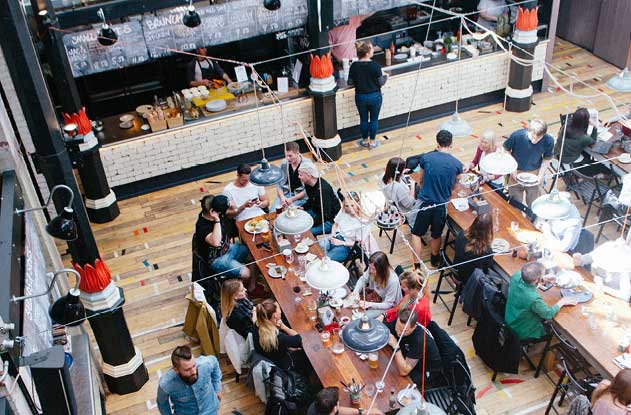Trends for Spring 2019
From the rise of mezcal to the popularity of recipe boxes, big businesses often find inspiration for new products from the independents. In fact, most main-stream retail trends, if you look closely, begin small – it’s the kind of trickle-up effect we all benefit from.
And it’s easy to get excited about shopping small when the UK’s independent food, drink and retail scene is this impressive.
Spice up your life
Chefs don’t bank on flavour from discoloured spices dating back to the early 2000s, so why should home cooks? Step forward Rooted Spices, a range of tin caddies filled with single-origin spices and blends like urfa pul biber (a Turkish aromatic everyday table spice) and Amchur dried mango.
Founded by Clara Glass and Rachel Walker, Rooted Spices are super fresh and sourced from single suppliers, and refills are available when you run out. The kind of kitchen ammunition that looks good on your shelf and tastes even better in your dishes.
rootedspices.com
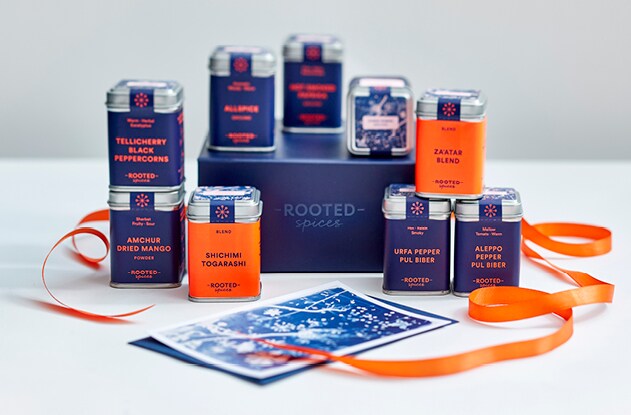
Meat free market
January 2019 was the month that ‘Veganuary’ seemed to propel veganism from a niche campaign to a mainstream movement. According to data from market expert Mintel, Britain has now overtaken Germany with the most vegan brand launches in the world and London has dozens of specialist vegan joints, with a buzzing junk food scene that’s worth trekking across the city to sample.
Many are so successful, they’re opening multiple sites: Temple of Seitan’s finger-lickin’ fried ‘chicken,’ What the Pitta’s vegan doner kebabs and fried jackfruit patties at Biff ’s Jack Shack, to name but a few. 2019 is the year of the vegan burger though, with plant-based burger brands that “bleed” now available on many supermarket shelves. Pure meat-free magic.
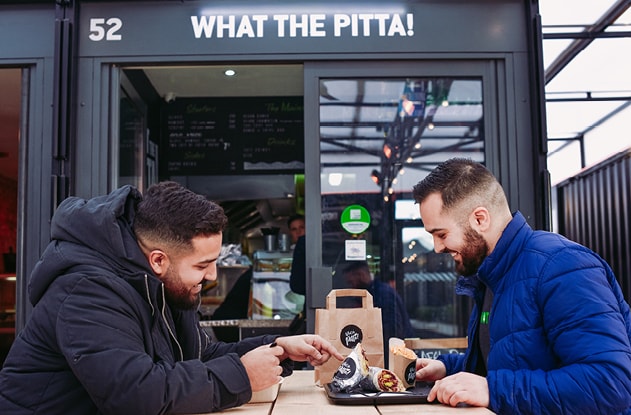
(Misshapen) fruit of fortune
2018 was the summer of wonky fruit and veg. Sales of misshapen produce soared as ranges expanded at many of the major supermarkets, but the trend has long been ripe among the independents. Launched in 2011, Rubies in the Rubble rescues fruit in a pickle to make award-winning condiments like spicy banana ketchup and chipotle mayo, while Oddbox delivers a selection of ugly (but delicious) perishables to Londoners’ doorsteps.
Zero waste dining and drinking is sprouting slower, but head to Cub restaurant in London, Doug McMaster’s collaboration with ‘the world’s best bartender’ Ryan Chetiyawardana (otherwise known as Mr Lyan) - for a cocktail led six-dish set menu. A champagne coupe of ‘ugly’ peaches, Bruichladdich whiskey and Islay seaweed, anyone?
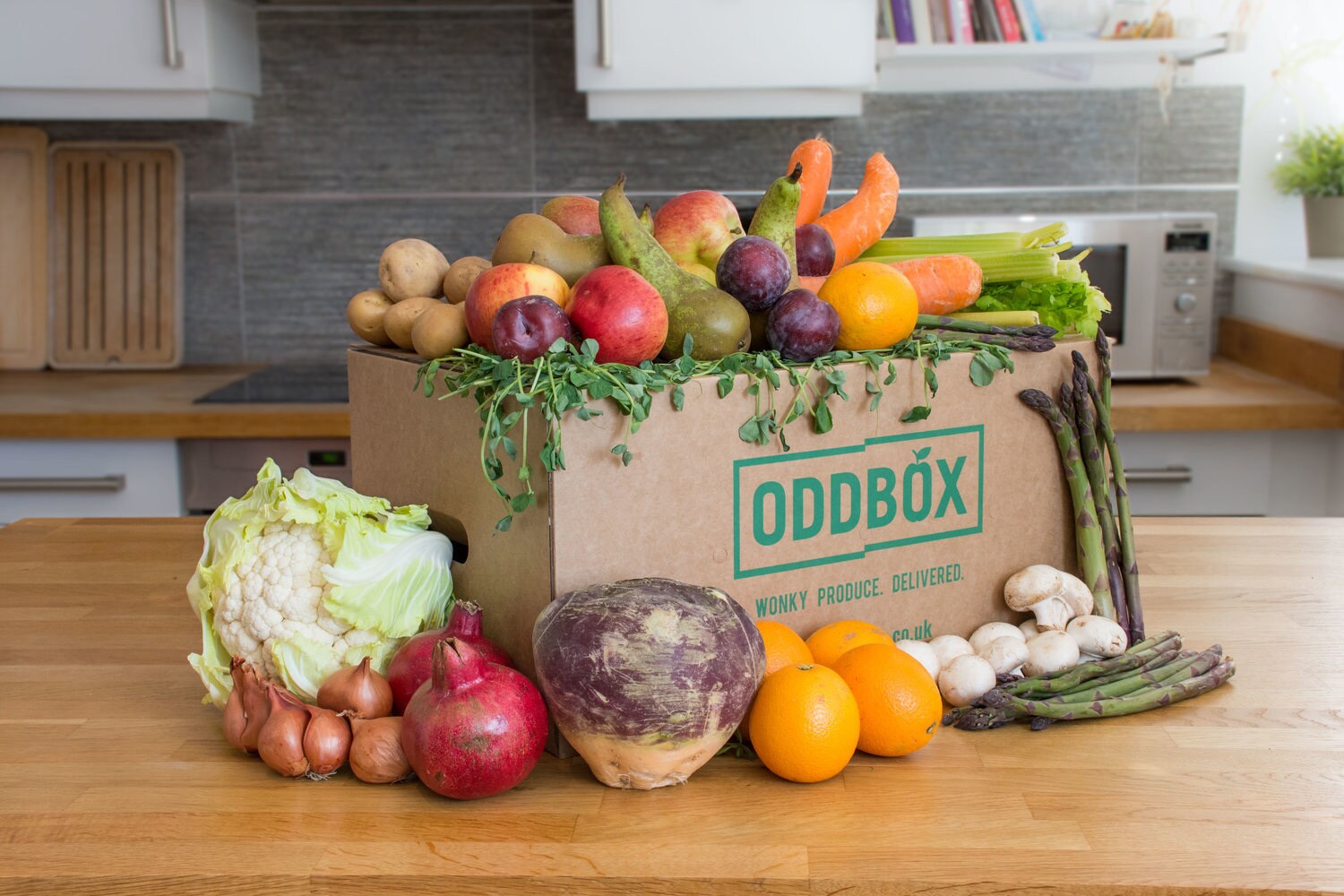
Follow the paper trail
The success of stationery start-up Papier is a sure sign that tangible, personalised paper products are back on the cards. Aiming to ‘inspire people to connect with each other in a more thoughtful way and more often,'
Papier is set to take a significant chunk of the UK’s £2.5 billion stationery market and has collaborated on ranges with the likes of interiors darling Luke Edward Hall and writer Dolly Alderton, to engage millennial consumers.
If browsing IRL is more your thing, Papersmiths in Brighton is a scribbler’s Shangri-La.
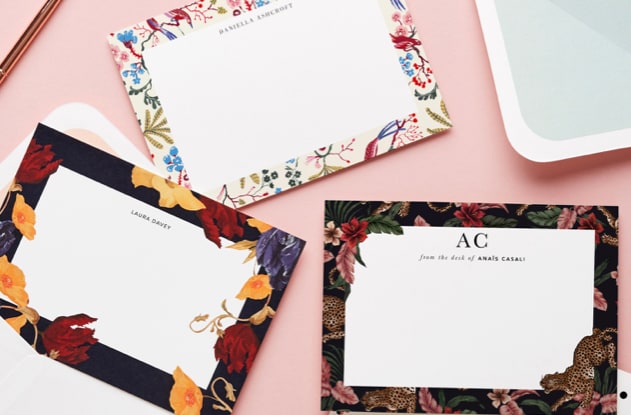
Switch up kitchens
Tech companies have long operated in co-working spaces - a study by Cushman & Wakefield found that central London had 2.5 million sq ft of lettings signed for flexible workspaces in 2017, a 190% increase on the previous year - but there’s no equivalent for the food and drink industry.
Until sisters Gini and Ecci Newton opened Karma Kitchen in October 2018. Businesses like Pip and Nut and Island Poke rent the east London workspace in 8 or 16-hour shifts, after which they clean up and clock off. With discounted Quiqup couriers and access to equipment without having to maintain it, it’s a radical new way to produce.
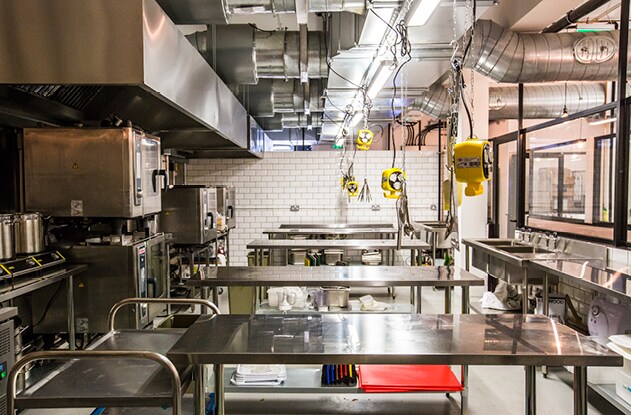
In good spirits
Mezcal - or agave distillate - is a complex spirit that’s been quietly igniting the London bar scene. With import duty on the drink being much higher than in continental Europe or the US, it’s been slow to penetrate the British market but Michael Sager, director of Sager + Wilde wine bar, is convinced 2019 could be the year it breaks through to retail too. “The next logical thing for a consumer to say is why would I have tequila that’s industrially produced, if I can have an artisanal product with a story,” he explains, speaking from a research trip in Paris, where mezcal has been a cocktail bar mainstay for years.
Now head of independent spirits label El Destilado, which he set up with business partners Marcis Dzelzainis and East London Liquor Company founder Alex Wolpert, we grabbed five minutes to talk distillates...
Why did you start with mezcal? “Provenance is important and for me, there’s no other spirit that embraces this like mezcal. It’s truly artisanal. We’ve had such a strong response - perhaps because we’re all barmen and restaurateurs doing this - but also because British drinkers love clear spirits and tequila has sort of paved the way for mezcal. People want to try new things, despite the sometimes prohibitive price point.”
What’s the story of the mezcal bottle design? “We wanted pure transparency, because this spirit is all about who makes it, where it comes from and how it’s made. I sent some design references like Byredo and Aesop to Charlie McKay, who helped us develop our restaurant Fare. It only took four or five meetings - he just gets us. We wanted it to stand out on a back bar or shelf.”
What’s next? “Mezcal’s not financially viable yet because it’s made in such small amounts, so we’re working on 16 expressions of uncertified agave distillates and three sugar cane distillates, including oaxacan white rum and pineapple eau de vie. We want to rediscover niche spirits and bring them to the people who care.”

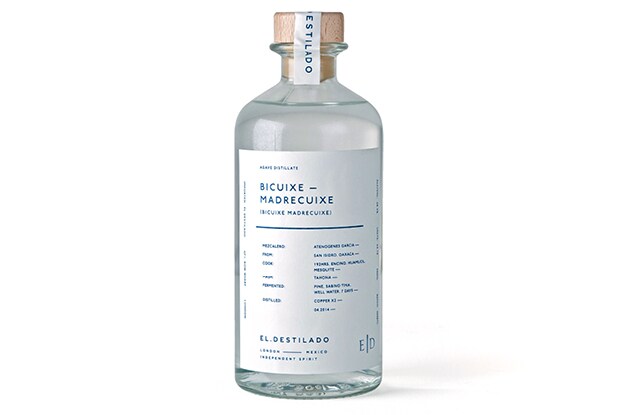
New retail hubs
Once a coal depot before becoming a glass warehouse and a music venue, architect-designers Heatherwick Studio sculpted Coal Drops Yard into an impressive complex of Victorian brick arches, cast-iron architecture and cobblestoned paving.
Chic shopping choices include Beija Lingerie, Wolf and Badger and an Earl of East London candle pouring store. But the best bit? First-rate eating gets as much of a look-in as the shops. Survey your purchases with a plate of buttery, smoky pancetta cotta giovanna and a glass of orange wine at The Drop (headed up by the team behind Barrafina, Quo Vadis and El Pastor), before a nightcap at Vermuteria.
18 years after plans were first proposed, these disused railway properties have emerged truly drop-dead gorgeous.
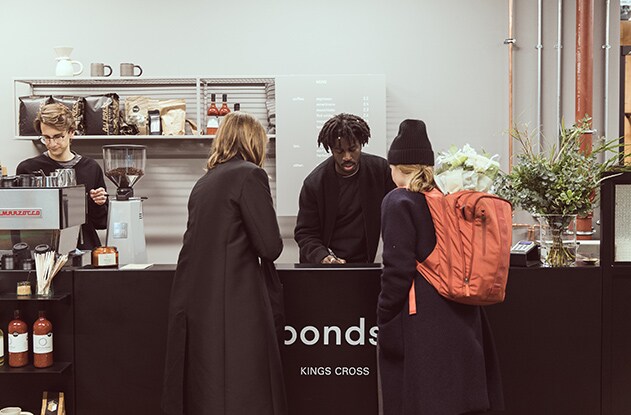
Waste not, want all
With an estimated eight to ten million tonnes of plastic ending up in our oceans every year, plastic waste is becoming the defining environmental issue of the decade. Zero waste independents like Glasgow’s Locavore are flying the flag for plastic-free shopping. Building a sustainable food system which includes a zero waste shop, veg box scheme and farm, Locavore sells organic dry goods, eco-friendly household cleaners, local honey, cheese, milk and locally made bread.
According to a 2018 investigation by The Guardian, a fifth of the average UK shopping bill goes towards the cost of packaging, so the joy of scooping and measuring your weekly shop will not only soothe your eco-guilt, but your wallet too.
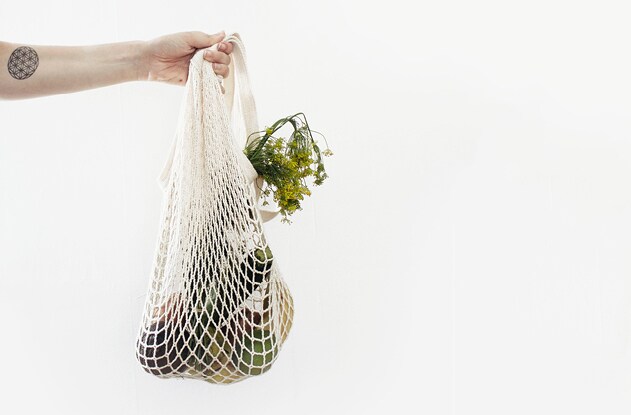
Seat at the chef's table
Over the past five years, the boundaries of what fine dining means have broadened. While there will always be a place in the world of restaurants for white table cloths and polished silverware, in 2019 the trend is for a more relaxed dining experience, with finesse coming from precise cooking and a detailed order of service.
We sat down with Nicholas Balfe, head chef and owner of Levan in Peckham and Salon in Brixton, to discuss restaurant influences and upcoming openings.
Which restaurants most influenced Levan and Salon? "Relae in Copenhagen is a big inspiration for me. They’re progressive, exciting and boundary pushing, but accessible, inviting and ultimately delicious!"
Do you have any restaurant openings on your radar for spring? "I can’t wait to see what the Lyle’s team does with their second site, Flor in Borough. I’m a big fan of Primeur, Westerns Laundry and Jolene, so I’m looking forward to their Cornish outpost. I’m also overdue a visit to Coombeshead Farm - especially now Oscar Holgado has taken over as head chef."
Finally, which ingredients are inspiring you this spring? "All those lovely green shoots and leaves - wild garlic, sorrel, three-cornered leeks and inevitably nettles. I’m looking forward to picking them as much as I am acooking them!"
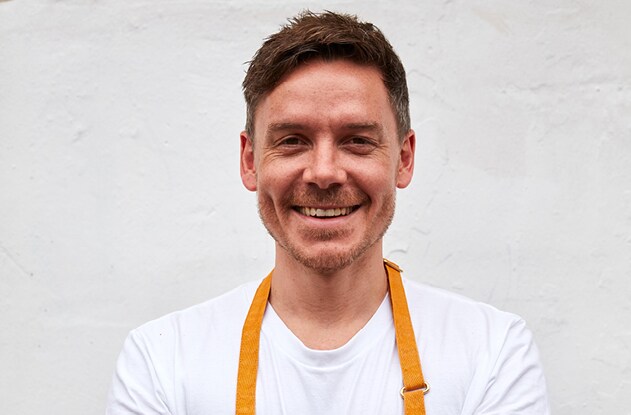
Cashless coup
The Athenian began serving up its Greek street food from a small Haringey market in 2014 and within a year, had expanded to six full-time locations across London and Bristol. “In 2015, we started doing food festivals around London and wanted to give people the option of paying by card,” say founders Efthymios and Neofytos.“The technology was there so it made sense to go cashless.
"Any street food operator, especially those thinking about acquiring a permanent site, would improve their day to day process by going cashless.” In terms of time efficiency, it eliminates the need to cash up at the end of a shift. A report conducted by Big Hospitality suggests that cash-free tech can raise per-head spend too. Of course, card-only bill settlement is cost-effective and faster for customers - a fifth of Britons don’t carry cash and two-thirds of people in the UK now use contactless payments regularly.
As a wave of card-only venues hit UK high streets, from artisan Manchester coffee house Takk to café Browns of Brockley and Nunhead micro-pub The Beer Shop, could we be waving goodbye to fumbling with coins and notes? You’d be wise to put money on it.
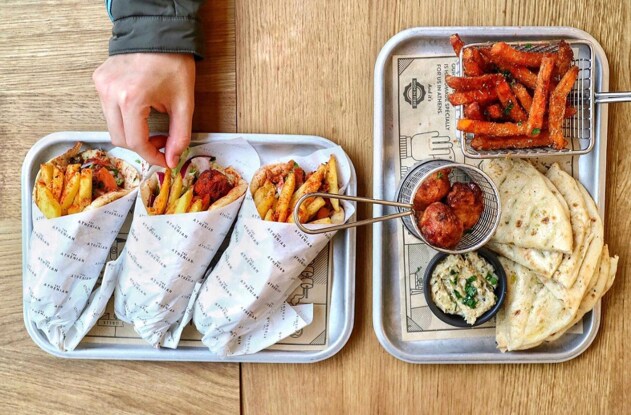
Renaissance plan
Some of Britain’s most iconic spaces are getting a facelift. Mackie Mayor Dining Hall in Manchester’s Northern Quarter has reinvigorated the former meat market, filling this 1858 grade II listed building with top-end food and drink operators, housed in a beautifully restored Victorian structure.
In London, high end street food spot Market Halls in Fulham has added modern day magic to the Edwardian’s London ticket hall. Whoever said you can’t teach an old dog new tricks?
